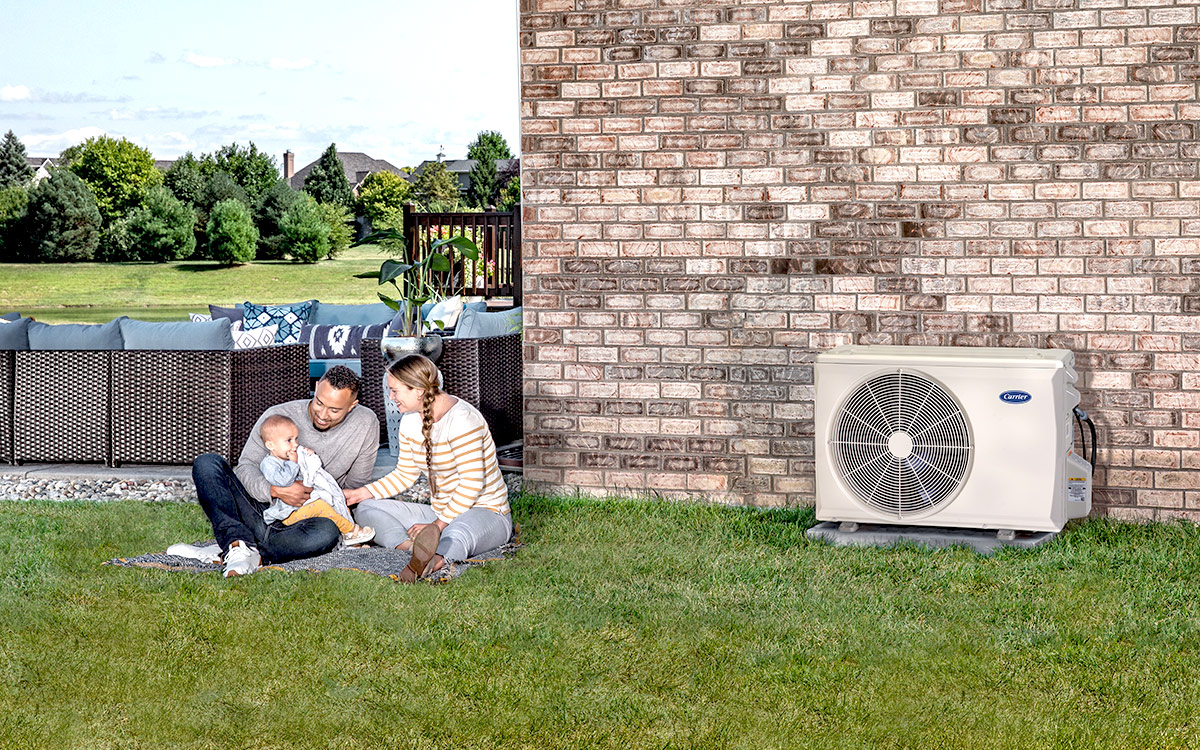
When it comes to cooling your home, the cost of an air conditioner is a key consideration.
Several factors affect air conditioner prices, and understanding them will help you make an informed decision. Whether you’re replacing an old unit or installing a new one, here’s everything you need to know about air conditioners, from types to features and everything in between.
Types of air conditioners and their impact on costs
The type of air conditioner you choose can greatly influence the overall cost of your cooling system. Here’s a breakdown of the different types and how they can affect prices:
- Window units: These are one of the most common and affordable types of air conditioners. They are designed to fit into a window opening, providing cooling to a single room. While they are easy to install and budget-friendly, their cooling capacity is limited compared to other systems.
- Split systems: Split systems, often referred to as ductless mini-splits, are more expensive than window units but provide more flexibility. They have two main components: an outdoor unit and an indoor unit that’s mounted on the wall. Split systems offer better energy efficiency and are suitable for cooling multiple rooms without the need for ductwork.
- Ducted systems: These are the most expensive option but are ideal for cooling large homes or entire buildings. A ducted system is connected to a series of ducts that distribute cool air throughout your home. They provide a seamless cooling experience, with the main unit typically installed in the ceiling or under the floor, but the installation can be complex and requires professional help.
- Portable air conditioners: These units are convenient for those who need cooling in specific areas. They are easy to move around but usually have a lower cooling capacity compared to window or split systems. Although portable units tend to be more affordable, they are less efficient for cooling large spaces.
Cooling capacity and size
When shopping for an air conditioner, cooling capacity plays a huge role in determining air conditioner prices. BTU (British Thermal Unit) is the standard measure of an air conditioner’s cooling capacity. A higher BTU rating means the unit can cool a larger space more efficiently.
For example, a small room (about 100 square feet) may only need an air conditioner with a cooling capacity of around 5,000 BTUs, while a large living room or open-plan area might require something with 12,000 BTUs or more. As the cooling capacity increases, so does the price of the unit. This means that the bigger the space you need to cool, the higher the air conditioner price is likely to be.
Energy efficiency ratings
Energy efficiency is a critical factor when choosing an air conditioner. EER (Energy Efficiency Ratio) and SEER (Seasonal Energy Efficiency Ratio) are commonly used ratings that indicate how energy-efficient a system is. Models with higher ratings tend to cost more upfront but can save you money over time by reducing electricity bills.
Opting for a more energy-efficient model can make a significant difference in the long run, especially if you’re using the air conditioner frequently during the summer months. While the initial price may be higher, the savings on your energy bills will offset this cost in the long run. So, if you’re looking at prices, it’s a good idea to balance energy efficiency with your budget.
Brand and build quality
The brand you choose can also influence prices. Reputable brands with a history of reliability and performance typically come with a higher price tag. However, these brands often offer better durability, longer lifespans, and reliable customer service.
Additionally, many trusted brands provide comprehensive warranties and after-sales support, which can make the higher initial cost more worthwhile. The peace of mind knowing that you have support if something goes wrong is worth considering when comparing air conditioner prices.
Installation requirements
One aspect that can add to your overall cost is the installation process. If you’re opting for a more complex system, such as a split or ducted air conditioner, you’ll need professional installation, which can add significantly to the price. Depending on your existing setup, you may also need electrical upgrades, modifications to your walls, or adjustments to ductwork.
For example, installing a ducted system may require running ducts through walls and ceilings, which can take time and require specialized labor. These factors contribute to the overall air conditioner prices, so be sure to factor in installation costs when budgeting.
Additional features and smart technology
Today’s air conditioners come with many additional features, and integrating smart technology is becoming increasingly popular. Features like smart controls, Wi-Fi connectivity, air purification, and dehumidification can all influence the price of the unit.
Smart air conditioners can be controlled via a smartphone app, giving you the flexibility to adjust settings even when you’re not home. While these units tend to cost more than basic models, they offer enhanced convenience and comfort, which may justify the extra cost for some buyers. As with any added functionality, these features can significantly impact prices.
Seasonal demand and availability
The demand for air conditioners tends to peak during the hotter months, which can drive up prices. If you’re shopping for an air conditioner in the middle of summer, you may find prices are higher due to increased demand. If you can wait for cooler months or plan your purchase, you may be able to snag a better deal.
Additionally, geographic location plays a role in air conditioner prices. In areas with high heat or long summers, the demand for cooling systems is higher, leading to potentially higher prices in those regions. Timing your purchase can make a difference in what you pay for an air conditioner.
Maintenance and longevity
Air conditioners require regular maintenance to keep them running smoothly and efficiently. Some units are built with durability in mind and come with features that make them easier to maintain, such as washable filters or self-cleaning functions. These units may cost more upfront, but their lower maintenance needs and longer lifespans can save you money in the long run.
On the other hand, cheaper units may have higher maintenance costs over time, as they might require more frequent servicing or replacement parts. When evaluating air conditioner prices, consider how much you’re willing to spend on maintenance over the life of the unit.
Government incentives and rebates
In many areas, there are government programs offering rebates or incentives for purchasing energy-efficient air conditioners. These rebates can help offset some of the initial cost, making it easier to invest in a more efficient model. Be sure to check with your local government to see if any such programs are available in your area and whether you qualify.
The role of professional advice
Finally, when shopping for an air conditioner, it’s always a good idea to consult an HVAC professional. They can assess your specific cooling needs and help you choose the right system for your home. By working with a professional, you can ensure that you’re getting the best value for your investment, balancing initial costs with long-term savings.
Frequently Asked Questions
Below are some commonly asked questions to consider:
How do I know which size air conditioner I need?
The right size depends on the square footage of the room you want to cool. Generally, a higher BTU rating is needed for larger spaces. A professional can help you assess your needs.
Is investing in a smart air conditioner worth it?
If you value convenience and energy efficiency, a smart air conditioner can be a great investment. They can be controlled remotely and offer additional features like air purification.
How often should I maintain my air conditioner?
Regular maintenance is important when it comes to extending the lifespan of your air conditioner. It’s typically recommended to service your air conditioner at least once a year, particularly before the summer season.
Check with HVAC companies about air conditioner prices
Choosing the right air conditioner involves more than just comparing prices. By considering factors like type, size, energy efficiency, and installation requirements, you can make a choice that provides value and long-term comfort. Keep in mind that while higher upfront costs might be a concern, the savings on energy bills, maintenance, and durability can make it worth the investment.
If you need help understanding the prices of air conditioners better, speak with a reliable company that specializes in air conditioner installation and other HVAC services.


